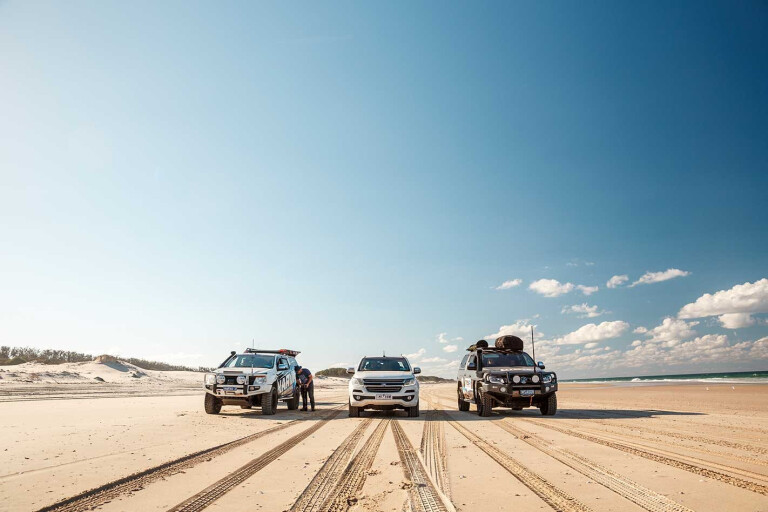
WHETHER you’re hitting the beaches or doing the deserts, driving on soft sand requires a certain set of skills if you want to make it over the next dune. Driving on sand can be tricky, and it pays to be prepared.
Here’s a list of tips to make your next beach expedition a safe and enjoyable one.
LOWER TYRE PRESSURES
SAND driving requires lower tyre pressures to ensure the tyre’s contact patch is longer and provides better traction. Pressures should be dropped to around 16 to 25psi, depending on the vehicle and terrain. This doesn’t guarantee you won’t get bogged, though.
STEER CLEAR OF THE WATER
WE recommend steering clear of saltwater when you’re driving along the sand, as it’s not great for your 4x4. However, if you do happen to get it wet, be sure to give it a thorough wash when back in town. Of course, keep an eye on the tide as well.
VEHICLE CLEARANCE
IT’S important to know the height of your vehicle’s clearance, as sand driving involves plenty of crests on soft surfaces. This heightens the chances of a 4x4 bottoming out. Before heading to the beach, think about giving your rig a lift.
RECOVERY GEAR
IF you get stuck, and the chances of getting stuck are pretty high when driving on sand, then you’ll need gear to make for an easy recovery. Don’t forget to pack a set of decent traction boards (Maxtrax) and a shovel. Plus a winch will help if truly stuck but you need something to anchor off. Keep this kit in your rig whenever you head off road.
DON’T BE AN IDIOT
THIS one is a no-brainer, but you’ll be amazed at how many people disrespect our coastlines. Driving at a steady, safe speed – and not recklessly – will ensure the environment remains protected and you remain alive. Also, ensure what you take with you leaves with you – don’t leave rubbish lying around.



COMMENTS